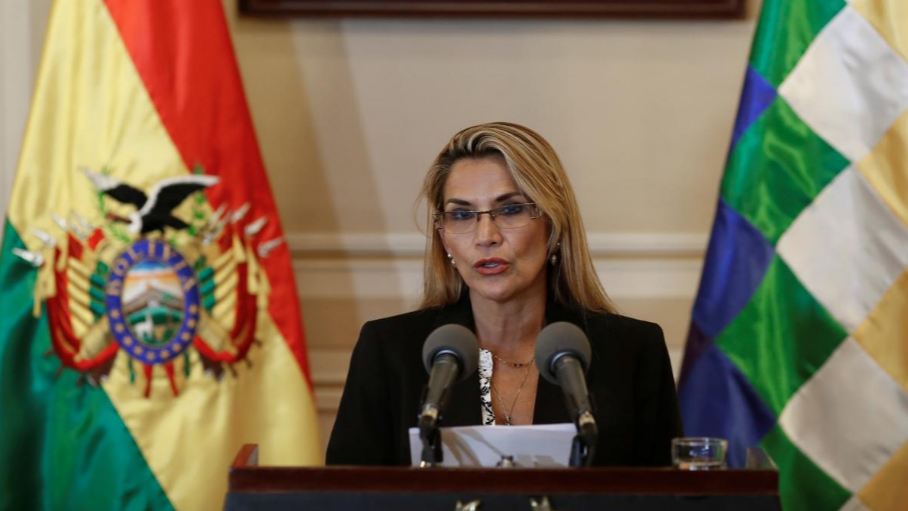
Bolivia's new interim president on Wednesday said she wanted elections as soon as possible and denied a coup had taken place against former leader Evo Morales, who hinted he could return to Bolivia.
The 52-year-old senate vice-president and conservative Jeanine Anez assumed the interim role on Tuesday when Morales fled to Mexico after his 14-year socialist rule ended in violent protests and recriminations.
Morales resigned on Sunday on the back of rising pressure over accusations of vote rigging in last month's election. But he struck a defiant tone from Mexico where he is seeking asylum.
"If my people ask, we're ready to go back. We'll return sooner or later ... to pacify Bolivia," he said at a news conference in Mexico City.
Anez faces an immediate challenge from lawmakers of Morales' Movement for Socialism (MAS) party, who have a majority in parliament and have threatened a rival session to nullify her presidency.
Anez declared herself president invoking a constitutional clause that puts her next in line for succeeding the president.
But Morales' loyalists say that move was illegal because Congress did not accept Morales' resignation or appoint her in any legislative session as required under the constitution.
International reactions
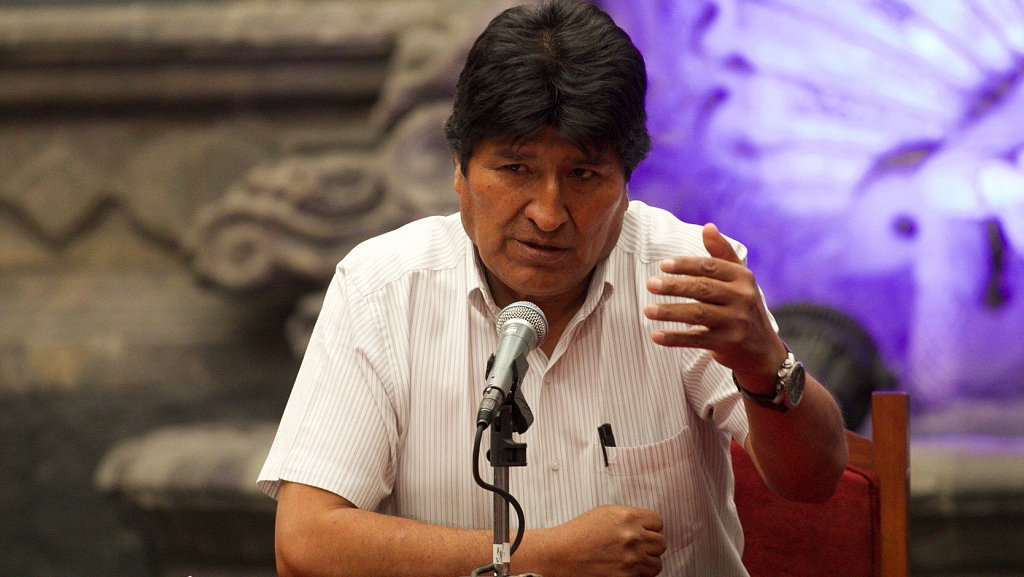
Former Bolivian president Evo Morales speaks at a press conference in Mexico City, Mexico, November 13, 2019. /VCG Photo
Former Bolivian president Evo Morales speaks at a press conference in Mexico City, Mexico, November 13, 2019. /VCG Photo
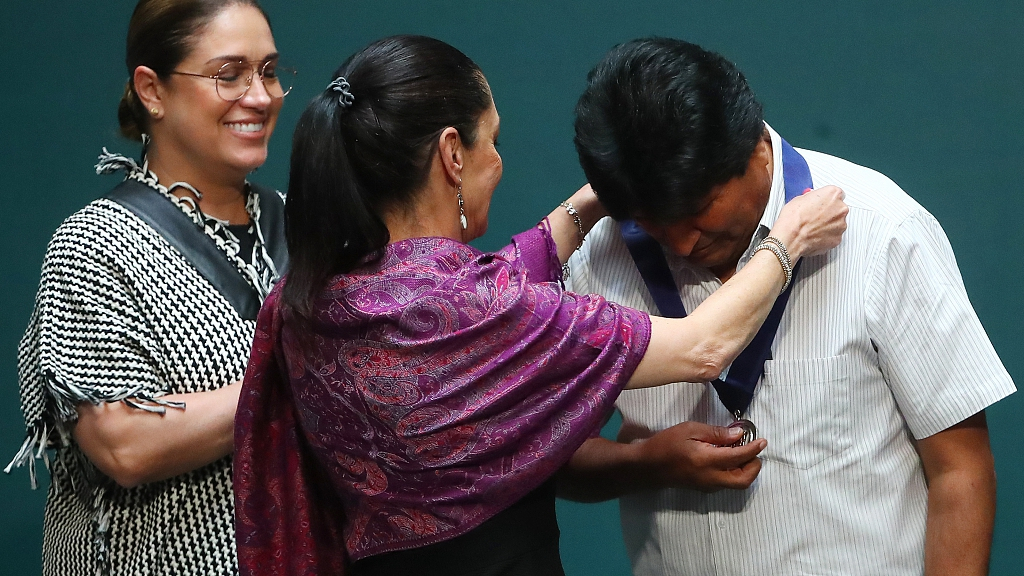
Former Bolivian president Evo Morales is being venerated by Mayor of Mexico City Claudia Sheinbaum as honorary guest at City Hall in Mexico City, Mexico, November 13, 2019. /VCG Photo
Former Bolivian president Evo Morales is being venerated by Mayor of Mexico City Claudia Sheinbaum as honorary guest at City Hall in Mexico City, Mexico, November 13, 2019. /VCG Photo
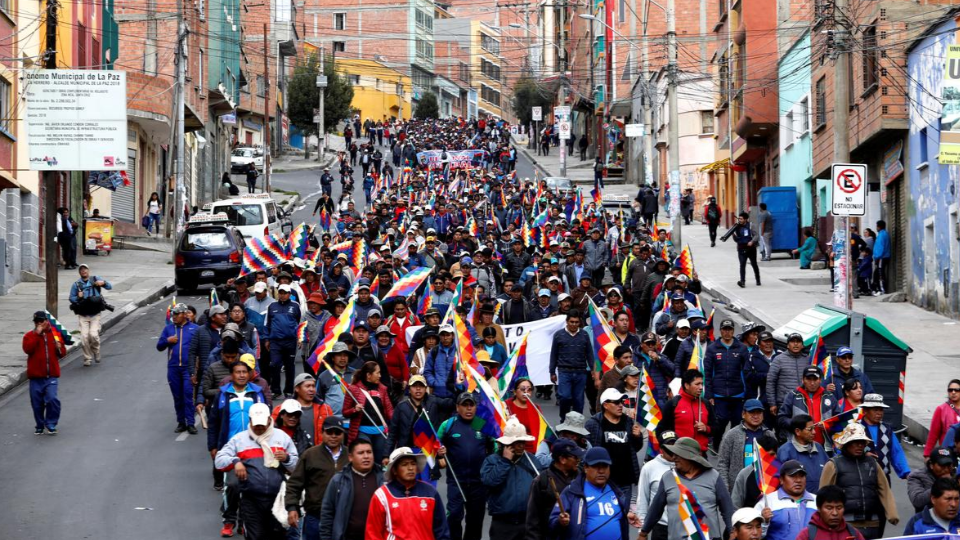
Supporters of former Bolivian president Evo Morales take part in a protest, La Paz, Bolivia, November 13, 2019. /Reuters Photo
Supporters of former Bolivian president Evo Morales take part in a protest, La Paz, Bolivia, November 13, 2019. /Reuters Photo
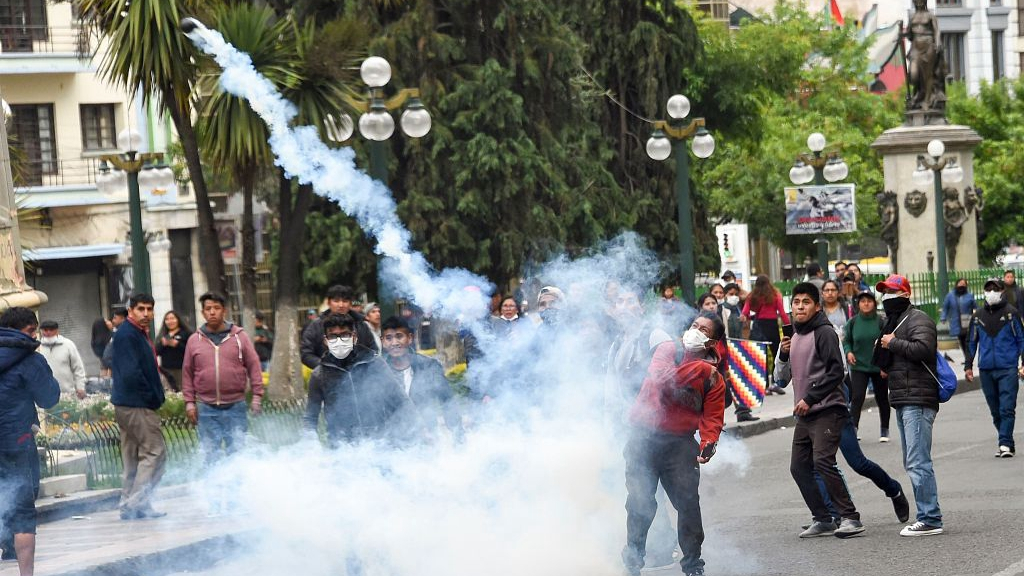
Supporters of former Bolivian president Evo Morales and locals discontented with the political situation clash with riot police during a protest, La Paz, Bolivia, November 13, 2019. /VCG Photo
Supporters of former Bolivian president Evo Morales and locals discontented with the political situation clash with riot police during a protest, La Paz, Bolivia, November 13, 2019. /VCG Photo
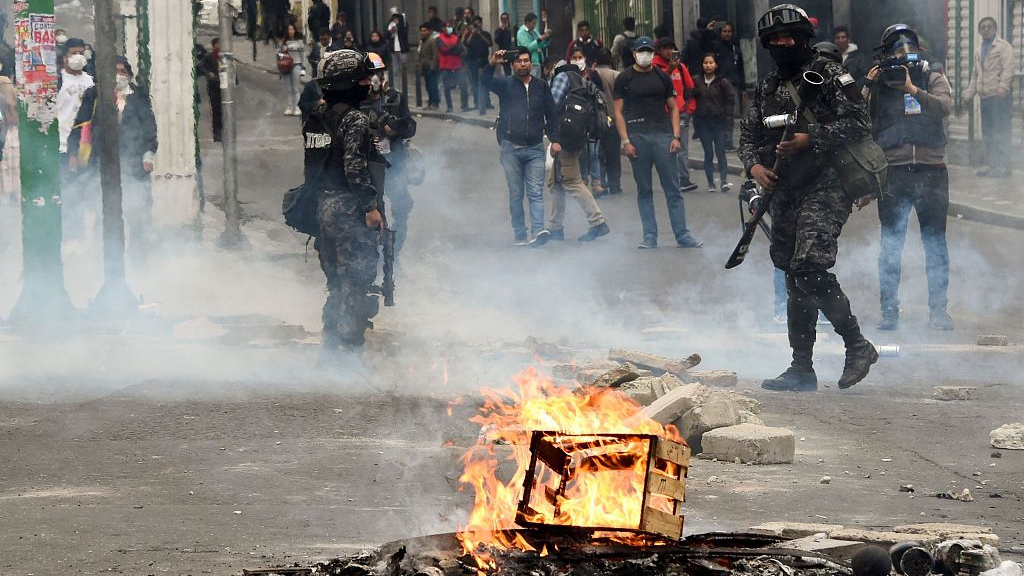
Riot police clash with supporters of former Bolivian president Evo Morales and locals discontented with the political situation during a protest, La Paz, Bolivia, November 13, 2019. /VCG Photo
Riot police clash with supporters of former Bolivian president Evo Morales and locals discontented with the political situation during a protest, La Paz, Bolivia, November 13, 2019. /VCG Photo
On Wednesday, television showed large numbers of police around the central Plaza Murillo in La Paz. They appeared to block MAS lawmakers, including the former head of the senate Adriana Salvatierra, from entering the government building.
Police also fired tear gas in the city center to break up crowds after thousands of Morales supporters marched into La Paz from nearby El Alto, many carrying the flags of regional indigenous groups.
Bolivia's attorney general has said that there have been seven fatalities in the 23 days of conflict, including in the cities of La Paz, Santa Cruz and Cochabamba.
International reaction to the crisis is divided.
Left-wing allies echoed Morales' allegations of a coup and others cheered his resignation as good for democracy. Conservative-led Brazil, Colombia, Britain and the U.S. congratulated Anez.
U.S. Secretary of State Mike Pompeo on Wednesday congratulated her and applauded her for taking office to lead her nation through this democratic transition.
(Cover: Bolivian Interim President Jeanine Anez reads a statement at the Presidential Palace, La Paz, Bolivia, November 13, 2019. /Reuters Photo)
Source(s): Reuters